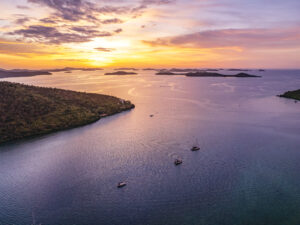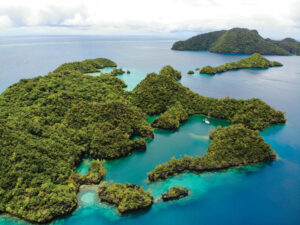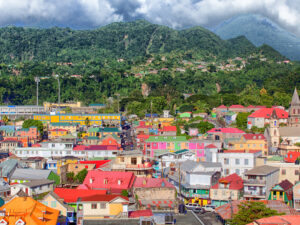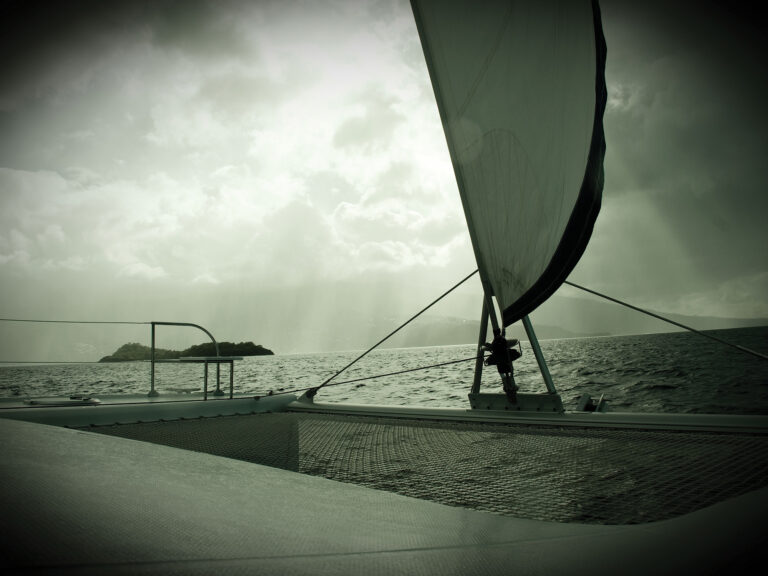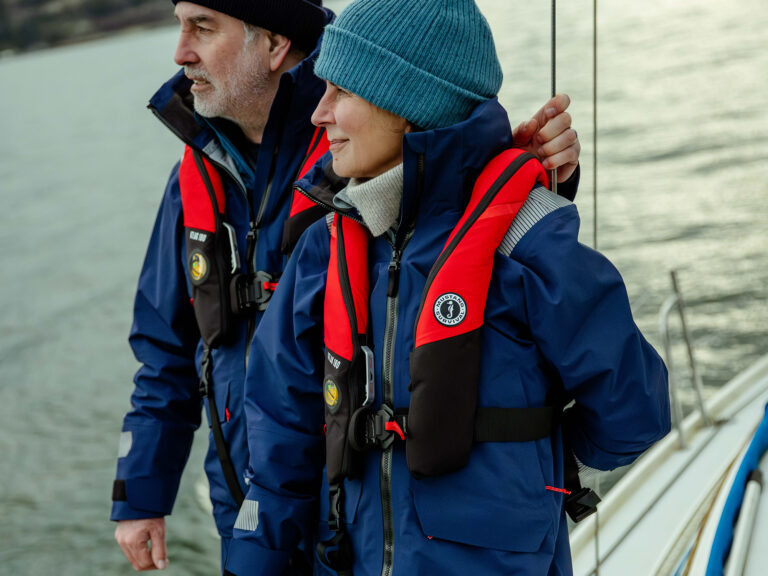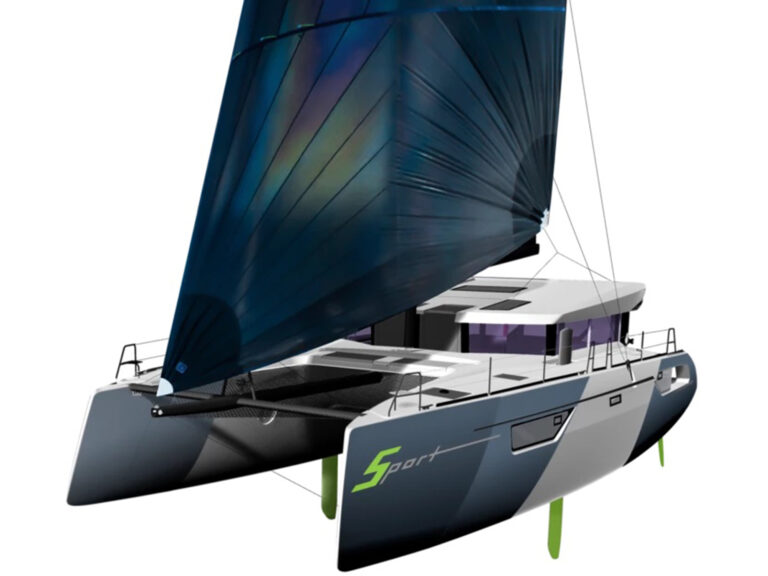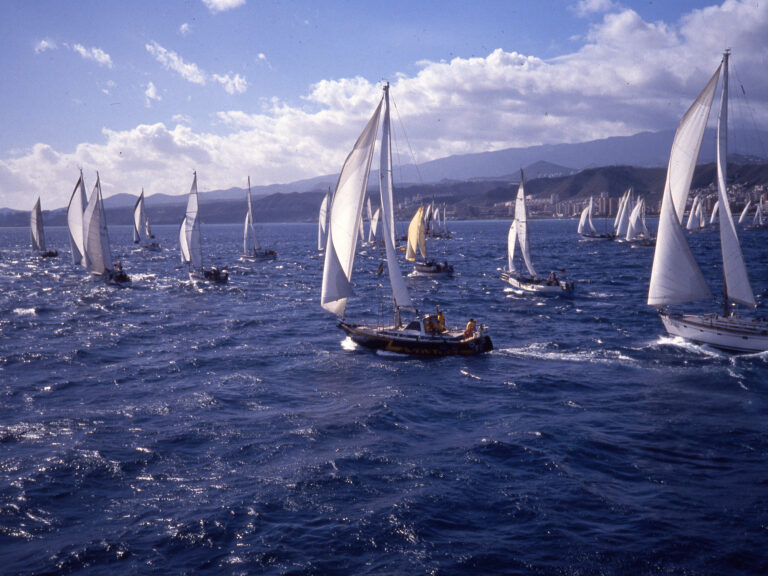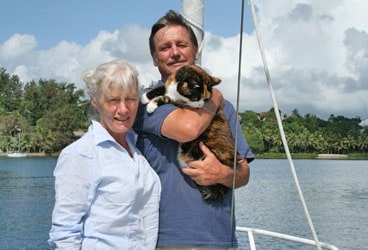
Alvah Simon and Family 368
The reports of my demise have been somewhat exaggerated. While anchored in Ant Atoll in Micronesia, I received an email from the US Coast Guard, Guam Branch, stating that an EPIRB distress signal had been picked up somewhere in the vicinity of Pohnpei. It carried an American registration but no other information was available. It requested that I “please report my welfare and whereabouts.”
About 90 percent of EPIRB signals are false alarms. This can only undermine the focus and urgency with which authorities respond to real emergencies. To help them eliminate possibilities, I immediately checked that our EPIRB had not been inadvertently tripped. I also contacted the two other American vessels I knew to be in the area. I wrote back to the USCG Guam with our position, welfare, and float plan. I heard nothing more from them.
Blowing out the match that started the forest fire does not put out the fire, however. Rumor Control Central must have been busy as the emails started to arrive: “Oh my God! Are you two O.K.?” one friend wrote. “The Micronesian Marine Police boarded our boat in the middle of the night looking for the Roger Henry. They said that they had received a distress signal specifically from you!”
I knew it would be some time before we could produce physical proof of our well being because we were now becalmed 300 miles west of Pohnpei, en route to the remote atoll of Lamotrek in Yap State.
My youngest brother and I once spun in circles for five eternally long days north of the Galapagos. For him the harshest gale was easier to endure than the feeling of being a helpless prisoner of nature. The sails slatted, another greasy swell passed beneath the keel, and the second hand ticked out loud–again.
“It might never blow,” he cried. “We could grow old out here!”
I comforted him by saying that in fact we would not grow old out here. The food and water would run out, so at the most the ordeal could only last 30 days.
Times have changed, and so too, our equipment. In spite of our 30-horsepower diesel and almost a half tank of fuel left, we had many miles to go before fetching Guam. Diana understands and therefore had no problem adhering to my “Rule Of Thirds And Halves.” That is: Allocate one third of your fuel, water, or food for the first half of the planned journey. Use the second third for the second half, and leave one-third in the tank for contingencies.
So we set the spinnaker and tried to at least create steerage. The actual speed towards our destination was not significant, but any progress in the right direction is a morale booster.
I try to change our frenetic western attitude of “Don’t just sit there. Do something!” into “Don’t just do something. Sit there.” So I did, with Doris Kearns Goodwin’s No Ordinary Time, one of the finest political histories I’ve ever read.
But Diana decided to optimize the idleness with a final entry into our ongoing South Pacific Bake-Off Contest. I felt I was so far in the lead that the winner was decided. She felt a lighter-than-air batch of cranberry muffins might yet tip the scale. Bless her; what came out of the oven had the specific gravity of lead. In the spirit of good sportsmanship and domestic harmony I told her, “These muffins are, well, durable. Not your fly-by-night flaky croissant. No! This is a food that anthropologists will marvel at in centuries to come.” Did I mention she does not appreciate my humor?
As it must, the wind eventually came–too much of it. We screamed along through crashing seas towards the low-lying Lamotrek with two reefs in the main and a heavily furled yankee.
A marlin struck our lure leaving nothing but a wisp of smoke and an empty reel. I am told that they will shed the hook in a matter of days and live a long and prosperous life. But how do we know that? I vowed in the future I will trail nothing at all or a cable of sufficient strength to guarantee the animal is hauled onboard and not wasted. Had I known how protein starved the population of Lamotrek was I would have deployed again immediately.
From 2300 to the next dawn we hove to on the windward side of the coconut covered Lamotrek, protecting our position to the east. Getting blown past it would make those miles to windward hard to recapture. At dawn we ferreted our way through one of the several passes on the leeward side of the eight-mile long atoll.
Now, I admit that I had just ceded to Fatty Goodlander all tropical isles with brown-skinned, bare-breasted maidens. However, I had just finished a wonderful biography of Ferdinand Magellan, who had obviously concluded that scruples have no place in high affairs. So as Ferdinand himself had, I decided to immediately violate the Treaty.
The results, forgive me Fatty, would produce one of the most amazing weeks of my life.


